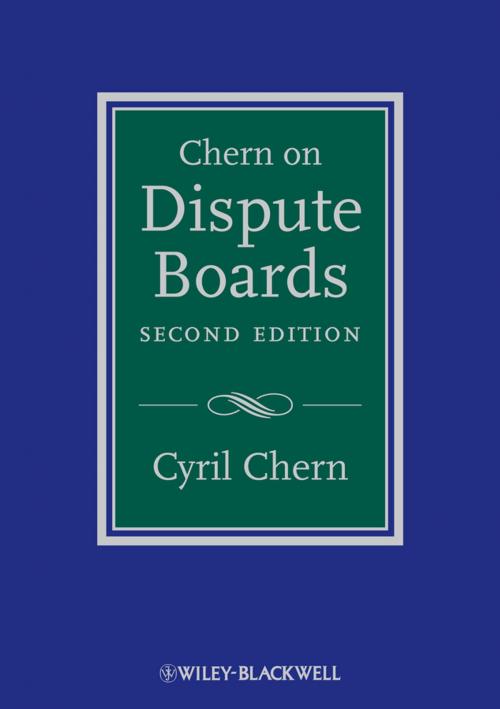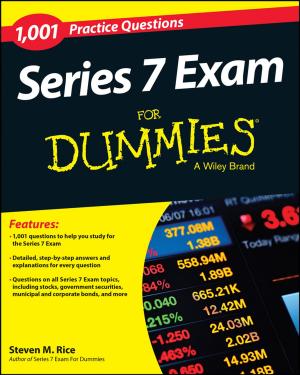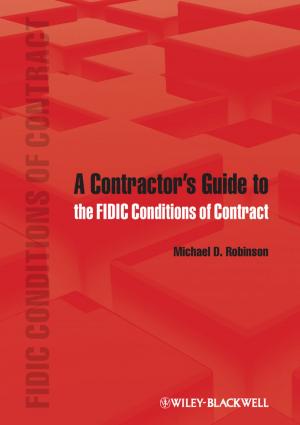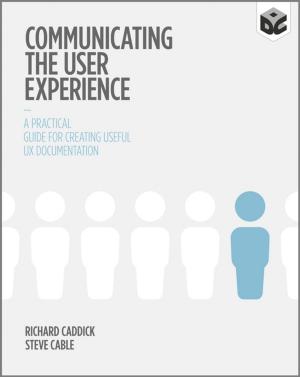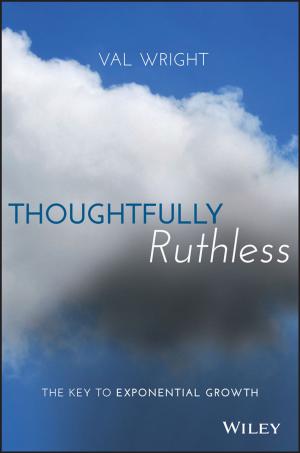| Author: | Cyril Chern | ISBN: | 9781119951995 |
| Publisher: | Wiley | Publication: | September 13, 2011 |
| Imprint: | Wiley | Language: | English |
| Author: | Cyril Chern |
| ISBN: | 9781119951995 |
| Publisher: | Wiley |
| Publication: | September 13, 2011 |
| Imprint: | Wiley |
| Language: | English |
A dispute board is a panel of impartial members, appointed at the outset of the construction contract, whose purpose is to monitor progress, resolve disputes as they arise and provide a forum for discussing difficult matters.
This book provides an in depth analysis of dispute board law and detailed, practical explanations of how dispute boards work in construction contracts for those actively involved. as well as for those who need to learn the process. Important features of the book include:
Explanation of how a dispute board works: Insider knowledge of board operations: Key documents to run a dispute board: Detailed discussion of dispute board law (covering key jurisdictions worldwide): Forms of practice and procedure, and sample documents
Reviews of the previous edition
"Chern's book provides an extremely practical guide, covering not only an introduction to the process but also providing check lists and sample documentation.... This book will be welcome by practitioners in the area and newcomers to the dispute board process."
—The International Journal of Arbitration, Mediation and Dispute Management, November 2009
"This book will provide a very useful, perhaps essential, guide to parties commissioning large capital construction projects, those advising them and those bidding to carry out such works, and importantly, the project funders."
—The Expert & Dispute Resolver
"This is a must-have book for grown up contractors"
—Tony Bingham, Building
"His timely work …concentrating on what may prove to be the primary means of dispute resolution for major international construction projects is to be welcomed."
—HHJ Humphrey Lloyd, QC, The International Construction Law Review
"This excellent book on Dispute Boards is a must for every construction lawyer, engineer, architect and contractor who is either involved in Dispute Boards or wants to be"
—Herbert Wilson, The Journal of the Dispute Board Federation
A dispute board is a panel of impartial members, appointed at the outset of the construction contract, whose purpose is to monitor progress, resolve disputes as they arise and provide a forum for discussing difficult matters.
This book provides an in depth analysis of dispute board law and detailed, practical explanations of how dispute boards work in construction contracts for those actively involved. as well as for those who need to learn the process. Important features of the book include:
Explanation of how a dispute board works: Insider knowledge of board operations: Key documents to run a dispute board: Detailed discussion of dispute board law (covering key jurisdictions worldwide): Forms of practice and procedure, and sample documents
Reviews of the previous edition
"Chern's book provides an extremely practical guide, covering not only an introduction to the process but also providing check lists and sample documentation.... This book will be welcome by practitioners in the area and newcomers to the dispute board process."
—The International Journal of Arbitration, Mediation and Dispute Management, November 2009
"This book will provide a very useful, perhaps essential, guide to parties commissioning large capital construction projects, those advising them and those bidding to carry out such works, and importantly, the project funders."
—The Expert & Dispute Resolver
"This is a must-have book for grown up contractors"
—Tony Bingham, Building
"His timely work …concentrating on what may prove to be the primary means of dispute resolution for major international construction projects is to be welcomed."
—HHJ Humphrey Lloyd, QC, The International Construction Law Review
"This excellent book on Dispute Boards is a must for every construction lawyer, engineer, architect and contractor who is either involved in Dispute Boards or wants to be"
—Herbert Wilson, The Journal of the Dispute Board Federation
